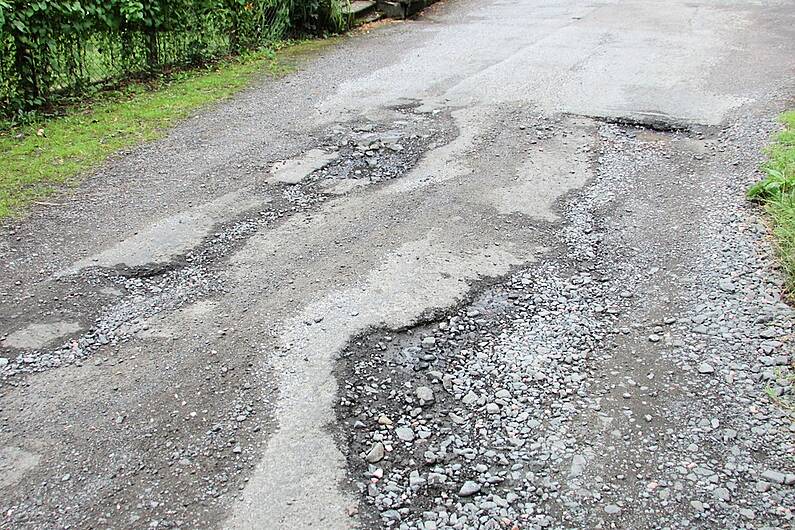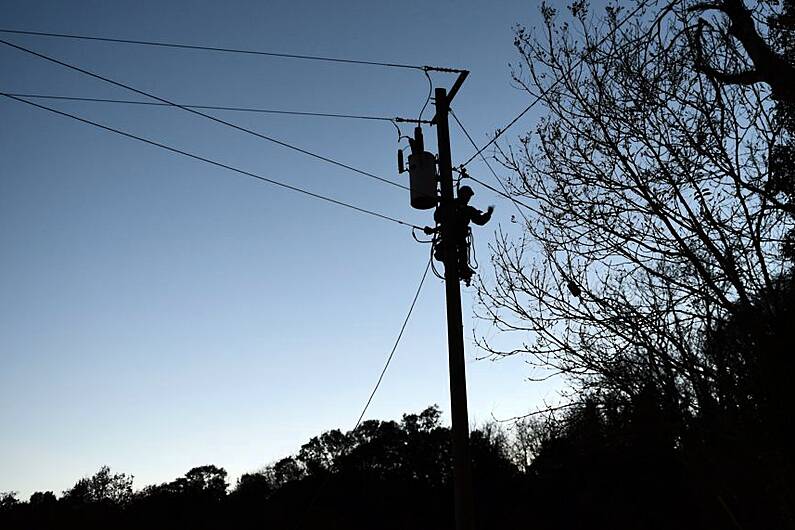Irish Water has changed its tendering process for contractors in the county.
In August, Irish Water launched a tender process for the plant hire needed to upgrade, maintain and repair the water system in the county.
The closing date for the new tender was earlier this month.
What contracts do Irish Water offer and what has changed?
Since its inception, Irish Water tenders for machinery and operators in Kerry were issued by regions in the county, such as the Dingle, Castleisland or Killorglin areas.
This enabled smaller, one-man contractors to tender for these contracts, many of which were close to the operator’s base.
For example, an operator in Dingle is more likely to be able to repair breaks in Dingle quicker and cheaper than someone based in Listowel.
These contracts were for maintaining and upgrading the water network.
In August, however, this changed.
Irish Water issued a countywide tender for the provision of a range of excavators (or diggers) with operators for Kerry, with a 12-month contract expected to start in October.
In summation, it means replacing a number of smaller contracts with a single, countywide tender.
A number of contractors in the county took issue with this. What are their concerns?
Contractors fear that, along with reduced employment opportunities, a countywide contract being held by one contractor could lead to overall increased costs and reduced levels of service.
To expand on this, we’ll give a hypothetical example. Consider a water main bursts overnight outside Killarney and cuts off supply for homes and businesses in the town. Currently, and for the past number of years, IW and Kerry County Council notify a local contractor and he arrives on. The pipe is repaired.
However, the contractors fear that, were a contractor from outside the county to secure the countywide tender, such local response times won’t be possible. A line said by a number of contractors to me in recent days is how can contractor outside the county respond to an incident in Killarney faster than a person in Killarney.
A contractor I spoke to gave a number of examples: in recent weeks, he has been called to help repair water main bursts at a variety of times, including 10pm on a Saturday night and 3pm on a Sunday afternoon.
He fears such a response time would not be possible, were a contractor outside the county to secure the contract.
But what if a contractor within the county secures the countywide contract?
For the size of the countywide contract, it appears there are very few contractors with the capacity to take this on alone. Additionally, were a large contractor based in North Kerry to secure the contract, it’s still a long – and costly – journey to Waterville to help repair a pipe.
So, a reduction in response time is a concern for the smaller, affected contractors. But, is there a possibility that money will be saved by eliminating a number of contracts and replacing them with one large contract?
From the outside, that makes sense. However, it doesn’t appear to be that straightforward.
A contractor from Killarney whom I spoke to said that he and other contractors can see Irish Water’s point of view: yes, one large contract is easier to manage from an administration viewpoint, however, it’s hard to believe there’ll be money saved.
He says this is because the rates given to the local contractors at the moment are very low, mostly due to the number of contractors available. The relatively large supply of possible contractors for a limited demand means the existing rates are low.
A contractor within the county could take it over and then sub-contract that work out to the existing contractors. However, if rates are already low, and then a main contractor takes it on only to sub it out, it’ll mean the cost of the countywide contract has to be more expensive than it currently is.
Another contractor, who’s from Castleisland, says the person who wins the contract can’t price going to Tarbert the same as going to Waterville. Therefore, there’ll be a marked increase in cost.
What did Irish Water say about this?
Irish Water says it must keep all procurement practices under constant review to ensure value for money is achieved.
This means reducing overall costs and reducing the administrative burden associated with procurement.
For the tender we’re speaking about, Irish Water says if the preferred supplier is unable to provide a particular piece of equipment, the tender allows for a reserve supplier to provide the service, and for a further three back up suppliers. Five suppliers will therefore be appointed per local authority, in an order of preference.
As is the case with other Irish Water tenders, if any supplier cannot provide the total service required in the tender, they can contract their services to the successful tenderer as required – this is essentially sub-contracting.
Irish Water expects the completion and award of this tender will reduce the administrative burden on the utility, on local authorities and on supply chain, and will reduce the cost of this annual hire.
So, Irish Water’s main reason appears to be an effort to cut down on paperwork. Did you ask them about a potential reduction in response times to water outages in Kerry?
I did ask Irish Water does it consider that there may be adverse effects, including: additional costs of possible sub-contracting of work from the main contractor which secures the contract; the distances and additional times required to travel to remote parts of Kerry (when compared with existing contractors which live and serve these areas); and the potential to lose local knowledge of water networks.
It didn’t response specifically to those queries.
What was the general consensus among the operators you spoke to?
They feel that this change will put many of them out of business. They claim that rates are low as is and that the reason they can survive on these rates is because the work to be done is close to their bases, meaning reduced travel costs per job.
They also say that the mantra of shop local, spend local and keep money circulating in the community is being discarded here. Were the contract to go to a main contractor outside of the county, the majority of the money could go with it.
The contractors affected were quick to say there’s no question that the successful tenderer wouldn’t do the job up to the required standard, it’s just that they have other concerns, which I’ve outlined.
They also said they’ve no issue with KCC or IW, but they are disappointed and worried by the change in this tender process.
Was there any indication of the number of people this could affect?
The contractors I spoke to claim around 20 operators will be affected. The operators are generally 1/2-man outfits, meaning 60 jobs around the county could be affected.
Also, the contractors say this change came about at very short notice. They feel more consultation and time should be given to a change of this magnitude.
They add it’ll likely put many of them out of business.
What’s the timeline for the new, countywide contract to come into effect?
The closing date was Friday, 18th September and the plan is to start the contract next month.
Eamonn Hickson - September 2020






